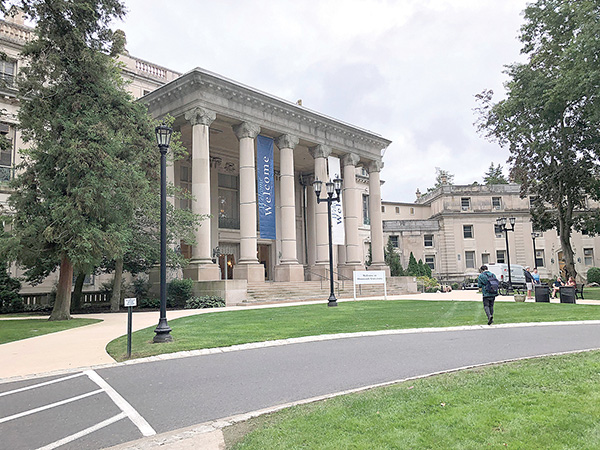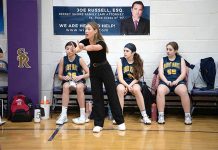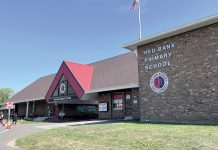By Mia Glass

In the midst of the COVID-19 pandemic, college students and administrations across the nation are faced with the tough question of whether it is safe to return to campus. With information about the virus emerging daily, the world of higher education is left in a spiral of last-minute decisions and changes of plans.
A number of well-known schools such as Princeton, Harvard and Rutgers have opted to hold classes almost entirely online with very few exceptions, while many others are attempting to keep a sense of normalcy by offering housing and some in-person classes for the fall semester.
Despite new daily cases in New Jersey being low compared to many hot spots throughout the nation, college campuses draw students from all over the United States and the world. This has made many New Jersey natives, whether they are going to school in or out of state, question their academic plans for the fall semester.
Mitose McHugh of Middletown is a sophomore at Rider University who is likely going to take her courses remotely instead of living in a dorm this semester.
Rider is reopening its campus for the fall semester, with in-person and online options. McHugh is mainly worried about her safety and that of her peers, but she also would have to pay for housing for the full school year if she chooses to live at Rider in the fall. However, if she opts to defer completely for the semester instead, she would lose her scholarship.
“I think people are stressed out with money situations,” she said.
As a geoscience major, McHugh is also concerned she would not receive the same level of education online that she would in a traditional academic setting.
“I struggled so much with labs (last spring) because they connected to the lectures. So later on they would ask if I understood the labs but I did them all virtually so I didn’t know what they were talking about,” McHugh said.
Although Rider begins its fall semester Aug. 31, McHugh has not yet decided if she will return to school or stay home.
Others are hanging onto the hope that their fall semester will be somewhat normal and that it is worth the risks to live on campus. Priya Rinkus of Rumson plans to start her freshman year at New York University Tisch School of the Arts as a dramatic writing major this fall. Rinkus considered deferring and taking a gap year but the application process for a deferral turned out to be highly competitive.
“They made it really difficult, especially because there are such limited spots for all the Tisch Arts programs. So it would be really hard to defer and take up spots for next year’s class, so they didn’t really let anyone defer for my major,” Rinkus said.
NYU classes begin Sept. 2, with in-person, online and hybrid options being offered. As a freshman, Rinkus should have had a week-long orientation before the start of the semester, but instead she simply had a Zoom call information session for her major.
“A majority of my classes are online, but my major’s a really small group so they said they might be able to meet small groups at a time. But they haven’t really confirmed anything,” said Rinkus.
Both McHugh and Rinkus expressed uncertainty about their courses and residential life, saying that their universities have not been very clear about many plans.
“They are releasing housing in waves so I have no idea yet. I wrote down a roommate, but I’m completely in the dark about that right now,” said Rinkus.
Most colleges and universities have been trying to keep students updated, but plans change quickly as new information comes to light and administrations are adjusting constantly to try to keep their communities as safe as possible during the pandemic.
Mary Anne Nagy, vice president for student life and leadership engagement at Monmouth University in West Long Branch, said the school worked closely with the Monmouth County Regional Health Commission to devise an extensive strategy for the fall.
The university will offer in-person, online and hybrid classes. Residential halls will be open for students, albeit at a reduced capacity in order to follow the state’s guidelines.
Monmouth draws most of its students from Monmouth, Middlesex and Ocean counties, so some students are electing to take their courses online or commute from home for a few hybrid classes. This has helped decrease the number of students in dorms and open up the limited space for those who need a place to live or students who are far from home and majoring in a subject best suited for hands-on learning.
“The state is very clear in saying that you have to give priority to students who need to have housing in order to have what they call ‘a fair access to an
equitable education,’ ” said Nagy.
Students who do choose to live on campus may only have visitors from their own buildings to prevent cross-contamination. If students would like to defer for the fall semester, they have that option, and the university will hold their room for the spring semester.
“If we are successful in mitigating the virus and by some chance there is an access to a vaccine and the student is more comfortable coming in the spring, we will put that student back into their room and their original housing assignment and that has really helped a lot of families,” Nagy said.
In accordance with current New Jersey guidelines, common areas and lounges will be closed on campus. However, if the state transitions to Phase 3, these spaces will be accessible with social distancing rules in place.
The university also has plans in place to handle what may be the inevitable positive cases that arise when students return to campus. A student testing positive for COVID-19 would need to quarantine. Those who live within 100 miles of campus will be asked to quarantine at home. If the student lives outside the 100-mile radius or cannot go home for any reason, the university has separate residential areas prepared for quarantining. In these facilities, health service staff will check in with the student twice a day to monitor their health, as well as bring food to them five times a week. The student’s roommate would also be quarantined until they test negative test for the virus.
“I think everyone has to expect that there are going to be some positive cases whether it’s a college campus or an elementary or secondary school,” said Nagy.
Nagy emphasized that the degree of an outbreak really depends on where the cases are appearing. If there is a cluster of cases on one floor of a dorm, it is very different and much easier to trace than many isolated cases scattered across campus.
“We would be consulting with the regional health commission as to what would constitute an outbreak or ask if we are at a point where, not just based on what’s happening at Monmouth University, but beyond our borders from a larger public health perspective, is it time to make any further adjustments,” said Nagy.
At Brookdale Community College in Lincroft, a commuter campus, students living in dorms is not a concern. “There is none of the sharing close quarters that comes along with housing,” said Shanna Williams, Brookdale’s college relations coordinator.
The school is still taking significant measures to prevent an outbreak. Most courses this semester are remote live, meeting at specific times through Zoom, or online, consisting mostly of prerecorded lectures with student-teacher interaction on discussion forums. There is also a hybrid option, where students can take a mix of online and live meeting courses, either remotely or in the classroom. Williams said the college is attempting to offer different options for most classes so students can decide what works best for them when determining their schedule.
Some students weren’t able to complete courses in the spring when everything suddenly moved online during the shutdown; those students are already back on campus to finish “in progress” courses. For those students, face masks are required in the buildings and a pre-screening health questionnaire must be completed before coming to campus each time.
Brookdale also recently had a drive-thru ceremony for its 2019 graduates, demonstrating how schools are trying their best to give students the same college experiences even during the pandemic.
“It was so nice to see our students and to be able to celebrate with them, so we can’t wait to get back,” said Williams.
While there are so many uncertainties, one thing is clear: No matter how universities decide to proceed for 2020-21 school year, students – and administrators – are desperate to return to campus life.
Nagy reflected on her own college days: “At this point in the summer I was anxious to get back to the life I knew. I missed my friends, I missed the challenges of what was happening academically, and I wanted to make progress towards my degree.”
However, everyone is also conscientious of the fact that safety is a top priority and that colleges need to take that into consideration when developing plans.
“I definitely want to be there, but I wouldn’t really be surprised with anything now. I feel like we’ll have to see what happens when we actually go back and see how the schools adapt to that,” said Rinkus.
While the new normal for colleges evolves in the coming weeks, students and staff alike will have to make some difficult decisions.
“It’s not what we want to do, it’s what in essence we have to do,” said Nagy.
The article originally appeared in the August 6 – 12, 2020 print edition of The Two River Times.














